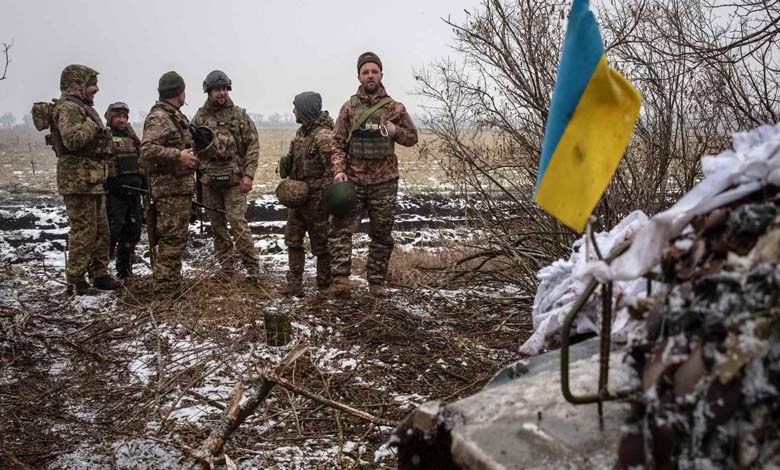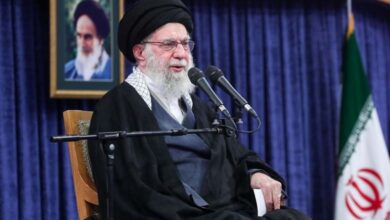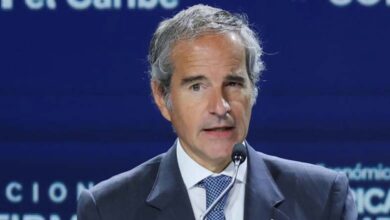Ukraine War: Kyiv Hints at Concessions in a Plan Full of Obstacles

In response to the White House’s proposal to end the Ukraine war, Kyiv has drafted a counteroffer – differing in some ways from President Donald Trump’s demands – but still leaving room for possible compromises on issues long considered intractable.
-
Behind the Fronts: An Image Sparks a Symbolic War between Russia and Ukraine
-
Trump and Ukraine’s Nuclear Plants… Bigger Than an Acquisition Plan
According to the plan obtained by The New York Times, there would be no restrictions on the size of Ukraine’s army, a “European security force” backed by the U.S. would be deployed on Ukrainian territory to ensure security, and frozen Russian assets would be used to repair war damages in Ukraine.
These three points might be unacceptable to the Kremlin, but parts of Ukraine’s plan show a willingness to reach a settlement; for example, it does not insist on the full restoration of all territories seized by Russia or Ukraine’s immediate NATO membership – two points President Volodymyr Zelensky had previously deemed non-negotiable, according to the American newspaper.
-
Appointment of a New Chief of Staff: Ukraine’s Attempt to Regain Military Momentum
-
Ukraine’s allies rally to support it… ‘A show of presence’ against Putin and Trump
Donald Trump traveled to Rome on Friday to attend Pope Francis’s funeral on Saturday. In a post after arriving, he stated that Russia and Ukraine were “close to an agreement” and urged both sides to meet directly to “end it.”
Earlier that day, he suggested he might meet Zelensky on the sidelines of the funeral. A senior Ukrainian official, speaking anonymously, said that if Zelensky visited Rome, he might try to personally present Ukraine’s counterproposal to Trump.
On Friday, Zelensky also made unusually optimistic remarks compared to earlier this week: “In the coming days, extremely important meetings may take place – bringing us closer to silence over Ukraine,” he said.
-
Secret Document Reveals… What Does Russia Want from Ukraine?
-
Ukraine ‘Truce’: Russia Responds to US Proposal
This would be the first meeting between the two leaders since Zelensky’s visit to the White House in February, during which Trump and Vice President J.D. Vance harshly criticized the Ukrainian president during a televised Oval Office confrontation.
It would also follow days of tension between the White House and Kyiv regarding the outlines of a possible peace agreement with Russia.
Zelensky rejected a White House proposal published this week that would recognize Russia’s control over Crimea, annexed in 2014. On Wednesday, Trump accused Zelensky of being a “provocateur,” saying that his refusal to accept the White House’s demands would “prolong the killing field.”
-
Ukraine after the Suspension of U.S. Aid: Implications and Options
-
Ukraine and Russia in the “State of the Union”: A Sign of Peace and Readiness for Dialogue
Nonetheless, room for concessions between Washington and Kyiv seems possible, though it remains unclear what Moscow would accept.
What does Ukraine propose?
Ukraine’s latest proposal does not demand immediate NATO membership – a major sticking point for Moscow – contrary to Zelensky’s previous position.
Instead, it states that “Ukraine’s NATO membership depends on the consensus among alliance members.”
-
U.S. Support Halted: Dangerous Scenarios for Ukraine in Its Fight against Russia
-
Ukraine Faces an Uncertain Future after a Clash Between Zelensky and Trump
During discussions in London and Paris, American officials reiterated Trump’s intent to oppose immediate NATO membership for Ukraine, but clarified that this would not bind future U.S. presidents.
At a meeting in Paris, according to a participant, the Americans told the Ukrainians: “A future administration may decide to bring Ukraine into NATO.”
American officials also confirmed that no restrictions would be placed on Ukraine’s military, contrary to Kremlin demands.
Although Trump and Vance expressed willingness this week to recognize Russian sovereignty over Crimea, they assured Ukrainians they would not be asked to do the same, nor would European allies.
-
On the Anniversary of the War in Ukraine… Russia Fails to Understand Trump’s Plan and Sets Its Negotiation Objective
-
Third Anniversary of the War: Ukraine Caught Between Frontline Anxiety and Political Concerns
On the territorial issue
Since February 2022, Russia has occupied large parts of eastern Donbas and a land corridor linking Russian territory to Crimea. The Kremlin has ruled out giving up any of these lands.
Ukraine’s proposal remains vague: it only states that Ukraine should “regain its full health,” without explicitly demanding the restoration of its 1991 borders.
“Territorial issues can be discussed after a complete and unconditional ceasefire,” the proposal says.
-
Ukraine without America: Zelensky Talks About “Slim Chances” of Survival
-
“Strategic ‘Toretsk’ in Russian Hands… Ukraine Faces Supply Line Crisis”
American officials deemed Zelensky’s goal of fully reclaiming occupied territories unrealistic. The U.S. proposal effectively acknowledges Russian control over some areas, which Ukraine and its European allies denounce as rewarding Moscow.
Although this would be a painful concession for Kyiv, the White House has rejected certain Russian demands, including a total Ukrainian withdrawal from four annexed regions.
U.S. officials hinted that territorial exchanges could be proposed to strengthen Ukraine’s defensive positions, but could not guarantee Russia’s acceptance.











